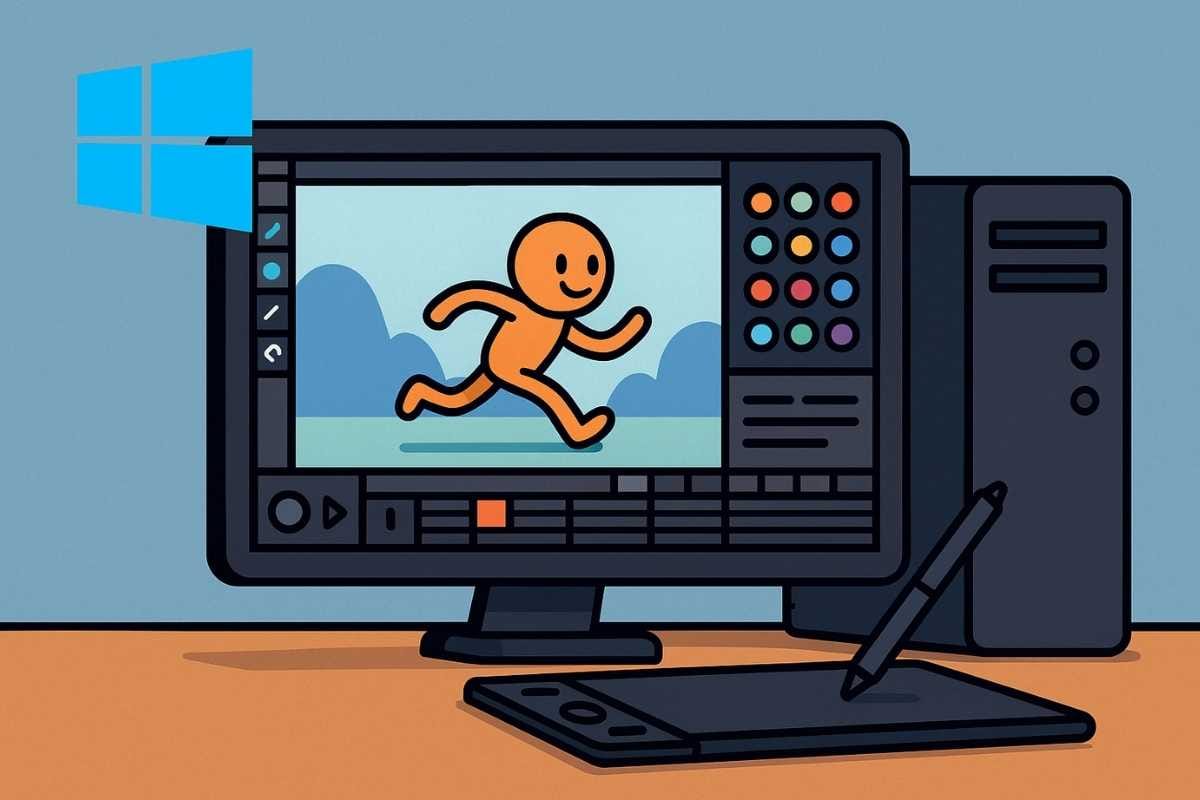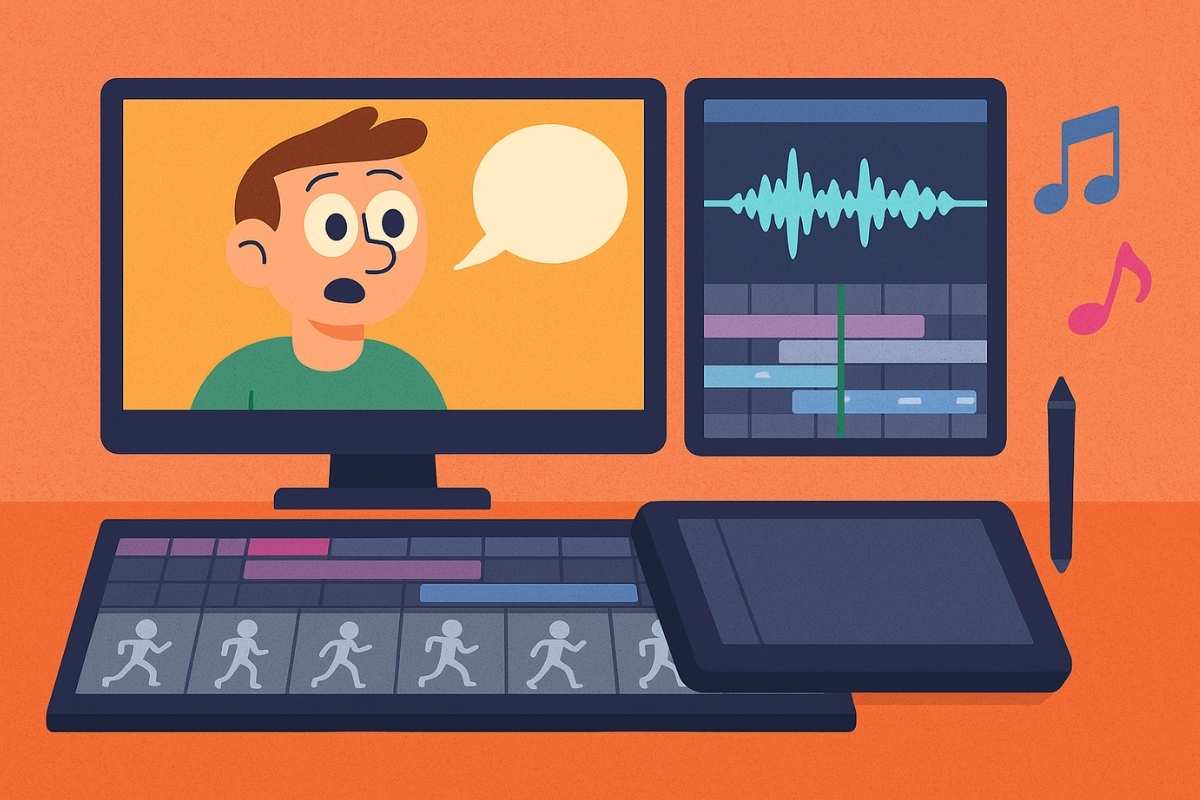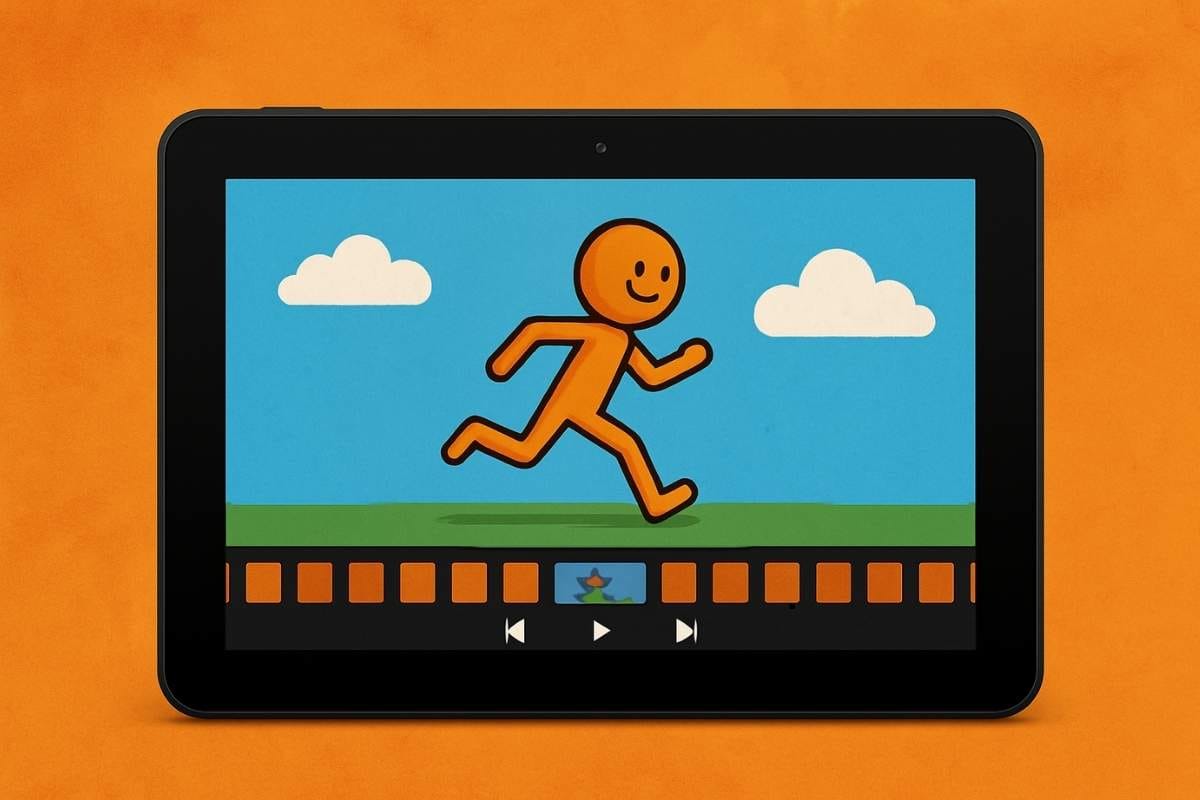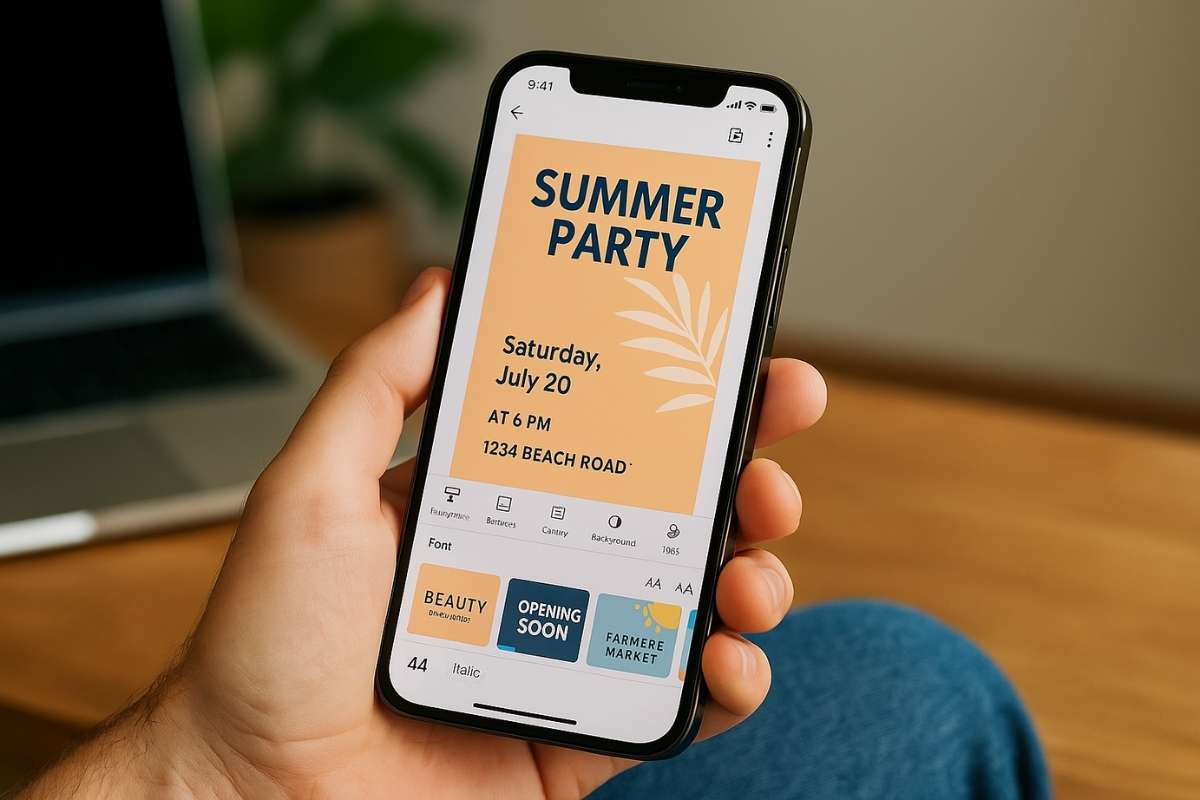12 Business Card Maker Apps That Stand Out in 2025
Business cards… they might feel a little old school, but honestly, they’re still one of the quickest ways to make a real first impression.
And the crazy part is, you don’t need to spend hours with some designer or wait weeks for delivery anymore.
These days, you just grab an app, play around with a few templates, toss in your logo or photo, and you’ve got a card ready in minutes.
I went through a bunch of apps and, you know, narrowed it down to 12 that actually stand out in 2025.
Some of them are super simple if you just want something quick, some are more design-heavy if you like that creative freedom, and a few even go all techy with QR codes, NFC, or let you order physical prints straight to your door.
So yeah, no matter your vibe, there’s definitely an app here that’ll work for you.
1. Blinq
Why I Picked It: It’s one of the cleanest and most reliable digital card apps right now.
So Blinq is like that app you don’t realize you need until you actually start using it.
Instead of carrying a bunch of printed cards that people lose anyway, you just whip out your phone, share your Blinq card with a QR code, NFC tap, or even straight to email.
It looks modern, it feels professional, and honestly, people kinda remember you better.
Plus, if you’re running a team, it’s got dashboards where you can manage everyone’s cards in one place.
I like how it keeps things super simple but still feels premium.
If you’re all about making networking less awkward and more memorable, this one just nails it.
Also Read: 14 Best Poster Maker Apps
2. HiHello
Why I Picked It: It’s probably the friendliest digital business card app out there.
HiHello just makes the whole card thing feel effortless.
You open it up, create your digital card, and suddenly you’ve got something that looks way more polished than those paper cards you left in a drawer.
What I really like here is how customizable it is — you can add your photo, social links, even video intros if you want to stand out.
And the sharing is smooth: QR codes, links, email signatures, whatever works for you.
A lot of people use HiHello because it just looks professional without trying too hard, and that’s honestly the vibe you want when you’re meeting someone new.
For networking in 2025, this app really keeps it simple but sharp.
3. Popl
Why I Picked It: It’s the best mix of digital + physical business cards.
Popl is fun because it’s not just an app, it also comes with those little NFC gadgets — like stickers, cards, or keychains.
You tap your Popl against someone’s phone, and they get your whole profile instantly. No app needed on their side, which is honestly the best part.
Inside the app, you can customize everything, track who you met, and even use it for lead capture if you’re in sales or events.
It feels very 2025 in the sense that you’re not handing over paper, you’re giving someone an experience.
If you want that “wow” factor when networking, Popl is the one people remember.
Also Read: 15 Flyer Maker Apps Blowing Up This Year
4. Mobilo
Why I Picked It: It’s super practical for professionals who meet tons of people.
Mobilo is like the grown-up version of digital business cards.
You get a physical NFC card (looks like a normal card but smarter), and the app lets you control what info people see when they tap it.
You can share your contact, link them to your website, or even drop them straight into a CRM if you’re really about that business life.
The cool part is, it cuts down on wasted paper and also keeps everything updated — if you change your phone number or email, your card updates instantly.
For busy folks who want to look professional and save time, Mobilo just makes sense.
5. Linq
Why I Picked It: It’s sleek and has analytics that show your networking is actually working.
Linq feels like the modern version of a Rolodex (if you remember those).
You create a card that’s fully digital, you share it with a tap or QR, and then the magic is in the tracking.
The app shows you insights — like how many people opened your card, clicked your links, or saved your contact.
It makes networking measurable, which is kinda wild when you think about it.
Plus, the designs look really polished, so you don’t come across as some amateur handing out half-baked stuff.
If you want both style and some data to back it up, Linq is a solid pick in 2025.
Also Read: 23 Best Logo Maker Apps Going Viral Right Now
6. Uniqode
Why I Picked It: It’s a solid choice if you want QR-based cards that just work.
Uniqode is all about keeping it simple but smart.
You make a digital business card inside the app, and it instantly gives you a QR code you can share anywhere — on your phone, email signature, even printed on merch if you’re into that.
What I like is that everything updates in real time, so if you switch jobs or update your website, you don’t need to reprint anything.
It’s not overloaded with features, but it nails the basics of networking without fuss.
For anyone who wants reliable QR-powered cards that still look professional, Uniqode is a strong pick.
7. Wave Connect
Why I Picked It: It’s a newer name but already one of the smoothest free options.
Wave Connect feels like the kind of app you wish you found earlier.
It has free and pro plans, but even the free one gives you enough to set up a clean business card with your contact info, socials, and a QR code for easy sharing.
The design is modern, and it doesn’t try to be complicated.
You open it, you build your card, and you’re done.
That’s honestly the charm here.
For students, freelancers, or anyone who wants something simple without spending money right away, Wave Connect is definitely worth trying in 2025.
8. Canva
Why I Picked It: It’s unbeatable for custom designs and creative freedom.
Okay, Canva is not just for Instagram posts or resumes — it’s actually one of the best places to design business cards, too.
They’ve got thousands of templates, fonts, and design elements, so you can make something that matches your brand perfectly.
And once you design it, you can either download a digital version or even order printed cards straight from Canva.
It’s super beginner-friendly, which is why so many people use it, but it also gives you enough creative control to make cards that don’t look cookie-cutter.
If design is your thing, Canva is the playground you’ll want.
9. Adobe Express
Why I Picked It: It’s perfect if you want pro-level branding with less effort.
Adobe Express (the new name for Adobe Spark) is great if you want something that feels a little more premium.
It gives you sleek templates and branding tools that just scream professional.
You can customize colors, logos, and layouts to fit your style without feeling overwhelmed, like in Photoshop.
Plus, you can quickly export a digital version or print it however you want.
It’s not as free-flowing as Canva, but if you’re looking for that polished Adobe touch without going full designer mode, Express is a safe bet in 2025.
10. Moo
Why I Picked It: It’s the go-to for premium printed business cards.
Moo has been around for a while, and honestly, it’s still one of the best if you want cards that people won’t just toss aside.
Their app and website let you design or upload your card, and then they print it on really nice, thick paper with finishes that feel luxury.
They even offer NFC business cards now, so you get the best of both worlds — physical and digital.
It’s not the cheapest option, but if you care about making a lasting impression with something people can feel, Moo is worth every penny.
11. Vistaprint
Why I Picked It: It’s the classic choice that never really goes out of style.
Vistaprint has been the go-to for printed business cards for years, and the reason is simple — they make it easy, affordable, and reliable.
You can hop into their app or website, pick a template, add your details, and you’re good to go.
The cool thing is, they’ve got endless design options, from super minimal to bold creative styles, so it fits almost anyone’s taste.
Plus, the quality is consistent, and the delivery is quick.
If you’re the type who still likes handing out physical cards but doesn’t want to overthink the process, Vistaprint is one of those safe, solid picks that gets the job done.
12. Simplified
Why I Picked It: It’s the best option for people who want fast results with zero hassle.
Simplified is all about, well, simplifying the process.
You open the app, choose a business card template, tweak a few things like your name, logo, and brand colors, and you’re done.
It’s not overloaded with too many fancy tools, which honestly makes it perfect if you’re not into design but still want something that looks professional.
You can export digital versions for free and even use it alongside their other tools if you’re into content creation.
For freelancers or small business owners who just want to get a decent card out there quickly, Simplified is a total lifesaver.
My Final Take
So yeah, that’s the list.
What I like about these Business Card makers is that they kinda cover every type of need — whether you’re all about digital networking with QR codes and NFC, or you still love handing out premium printed cards.
Some of these apps are about design freedom, some are about keeping things super quick, and a few are just focused on giving you the most professional vibe possible.
Honestly, it really comes down to what you’re looking for — if you want flashy and memorable, go for Popl or Moo, if you want simple and digital, Blinq or HiHello will do the trick, and if you’re a creative type, Canva or Adobe Express is where you’ll shine.
At the end of the day, the best business card is the one that actually helps people remember you.
FAQs
Which app is best for making business cards in 2025?
It kinda depends on what you need. If you want digital cards with QR codes, Blinq or HiHello are solid. If you want physical premium cards, Moo is still hard to beat. And if design freedom is your thing, Canva or Adobe Express will give you tons of options.
Are digital business card apps better than printed cards?
Honestly, both still matter. Digital cards are super easy to share and update, which is great in 2025 when everyone’s on their phone. But printed cards still feel more personal in certain settings, like business meetings or events. The smart move? Have both.
Can I make a business card for free?
Yep, a lot of these apps like Wave Connect, Canva, or Simplified let you design and download a free digital card. For printed cards though, you’ll usually need to pay at least a little bit for good quality.
Do I need design skills to use these apps?
Not at all. Most of these apps come loaded with templates, drag-and-drop tools, and customization options. Even if you’ve never designed anything before, you can still make a professional-looking card in minutes.
Can I order printed cards directly from these apps?
Yes, apps like Canva, Vistaprint, and Moo let you design and order prints straight from the app. You don’t need to export files or find another printing service, which honestly saves a ton of time.






